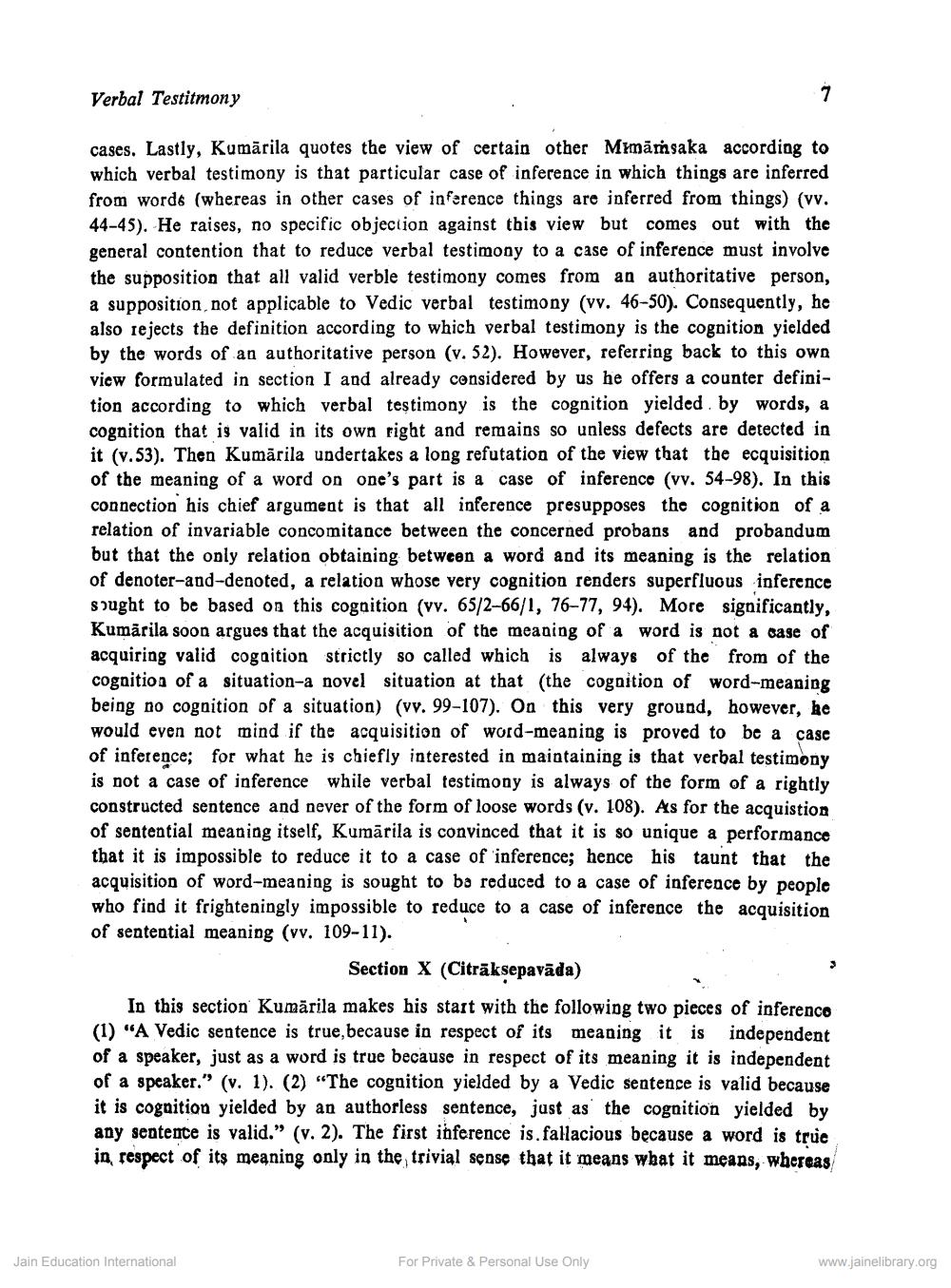________________
Verbal Testitmony
cases. Lastly, Kumārila quotes the view of certain other Mmmāmsaka according to which verbal testimony is that particular case of inference in which things are inferred from words (whereas in other cases of inference things are inferred from things) (vv. 44-45). He raises, no specific objection against this view but comes out with the general contention that to reduce verbal testimony to a case of inference must involve the supposition that all valid verble testimony comes from an authoritative person, a supposition not applicable to Vedic verbal testimony (vv. 46-50). Consequently, he also rejects the definition according to which verbal testimony is the cognition yielded by the words of an authoritative person (v. 52). However, referring back to this own view formulated in section I and already considered by us he offers a counter definition according to which verbal testimony is the cognition yielded by words, a cognition that is valid in its own right and remains so unless defects are detected in it (v.53). Then Kumārila undertakes a long refutation of the view that the ecquisition of the meaning of a word on one's part is a case of inference (vv. 54-98). In this connection his chief argument is that all inference presupposes the cognition of a relation of invariable concomitance between the concerned probans and probandum but that the only relation obtaining between a word and its meaning is the relation of denoter-and-denoted, a relation whose very cognition renders superfluous inference sought to be based on this cognition (vv. 65/2-66/1, 76–77, 94). More significantly, Kumärila soon argues that the acquisition of the meaning of a word is not a case of acquiring valid cogaition strictly so called which is always of the from of the cognition of a situation-a novel situation at that the cognition of word-meaning being no cognition of a situation) (vv. 99-107). On this very ground, however, he would even not mind if the acquisition of word-meaning is proved to be a case of inference; for what he is chiefly interested in maintaining is that verbal testimony is not a case of inference while verbal testimony is always of the form of a rightly constructed sentence and never of the form of loose words (v. 108). As for the acquistion of sentential meaning itself, Kumārila is convinced that it is so unique a performance that it is impossible to reduce it to a case of inference; hence his taunt that the acquisition of word-meaning is sought to be reduced to a case of inference by people who find it frighteningly impossible to reduce to a case of inference the acquisition of sentential meaning (vv. 109-11).
Section X (Citrākṣeparāda) In this section Kumārila makes his start with the following two pieces of inferenco (1) "A Vedic sentence is true, because in respect of its meaning it is independent of a speaker, just as a word is true because in respect of its meaning it is independent of a speaker." (v. 1). (2) "The cognition yielded by a Vedic sentence is valid because it is cognition yielded by an authorless sentence, just as the cognition yielded by any sentence is valid." (v. 2). The first inference is fallacious because a word is true in respect of its meaning only in the trivial sense that it means what it means, whereas
Jain Education International
For Private & Personal Use Only
www.jainelibrary.org




